2 May 2014 | News
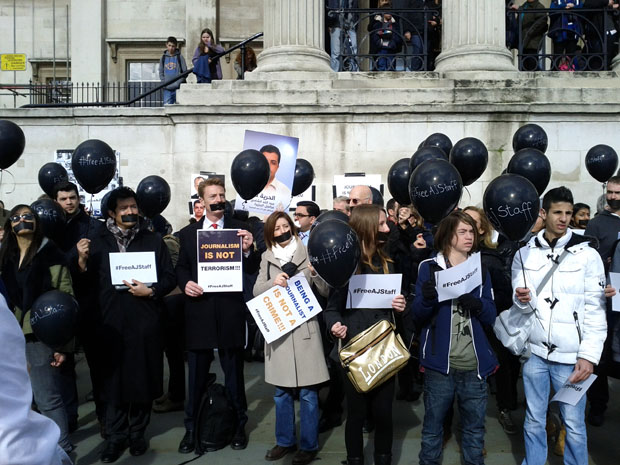
A London protest calling for the release of jailed Al Jazeera journalists in Egypt (Image: Index on Censorship)
Press freedom is at a decade low. Considering just a handful of the events of the past year — from Russian crackdowns on independent media and imprisoned journalists in Egypt, to press in Ukraine being attacked with impunity and government reactions to reporting on mass surveillance in the UK — it is not surprising that Freedom House have come to this conclusion in the latest edition of their annual press freedom report. This serves as a stark reminder that press freedom is a right we need to work continuously and tirelessly to promote, uphold and protect — both to ensure the safety of journalists and to safeguard our collective right to information and ability to hold those in power to account. On the eve of World Press Freedom day, we look back at some of the threats faced by the world’s press in the last 12 months.
1) Journalism is not terrorism…
National security has been used as an excuse to crack down on the press this year. “Freedom of information is too often sacrificed to an overly broad and abusive interpretation of national security needs, marking a disturbing retreat from democratic practices,” say Reporters Without Borders (RSF) in their recently released 2014 Press Freedom Index.
Journalists have faced terrorism and national security-related accusations in places known for their somewhat chequered relationship with press freedom, including Ethiopia and Egypt. However, the US and the UK, which have long prided themselves on respecting and protecting civil liberties, have also come under criticism for using such tactics — especially in connection to the ongoing revelations of government-sponsored mass surveillance.
American authorities have gone after former NSA contractor and whistleblower Edward Snowden, tapped the phones of Associated Press staff, and demanded that journalists, like James Risen, reveal their sources. British authorities, meanwhile, detained David Miranda under the country’s Terrorism Act. Miranda is the partner of Glenn Greenwald, the journalist who broke the mass surveillance story. Authorities also raided the offices of the Guardian — a paper heavily involved in reporting in the Snowden leaks.
2) …but governments still like putting journalists in prison
The Al Jazeera journalists detained in Egypt on terrorism-related charges was one of the biggest stories on attacks on press freedom this year. However, Mohamed Fahmy, Baher Mohamed, Peter Greste and their colleagues are far from the only journalists who will spend World Press Freedom Day behind bars. The latest prison census from the Committee to Protect Journalists (CPJ) put the number of journalists in jail for doing their job at 211 — their second highest figure on record.
In Bahrain, award-winning photographer Ahmed Humaidan was sentenced in March to ten years in prison. In Uzebekistan, Muhammad Bekjanov, editor of opposition paper Erk, is serving a 19-year sentence — which was increased from 15 in 2012, just as he was due to be released. In Turkey, after waiting seven years, Fusün Erdoğan, former general manager of radio station Özgür Radyo, was last November sentenced to life in jail. Just last Friday, Ethiopian authorities arrested prominent political journalist Tesfalem Waldyes and six bloggers and activists.
3) New media is under attack…
As more journalism is being conducted online, blogs, social and other new media are increasingly being targeted in the suppression of press freedom. Almost half of the world’s jailed journalists work for online outlets, according to the CPJ. China — with its massive censorship apparatus — has continued censoring microblogging site Sina Weibo, while also turning its attention to relative newcomer WeChat. In March, it closed down several popular accounts, including that of investigative journalist Luo Changping.
Meanwhile, Turkish Prime Minister Recep Tayyip Erdoğan has publicly all but declared war on social media, at one point calling it the “worst menace to society”. Twitter played a big role in last summer’s Gezi Park protests, used by journalists and other protesters alike. Only days ago, Turkish journalist Önder Aytaç was jailed, essentially, because of the letter “k” in a Tweet.
Meanwhile Russia has seen a big crackdown on online news outlets, while legislation recently passed in the Duma is targeting blogs and social media.
4) …and independent media continues to struggle
Only one in seven people in the world live in countries with free press. In many parts of the world, mainstream media is either under tight control by the government itself or headed up media moguls with links to those in power, with dissenting voices within news organisation often being pushed out. Brazil, for instance, has been labelled “the country of 30 Berlusconis” because regional media is “weakened by their subordination to the centres of power in the country’s individual states”. At the start of the year, RIA Novosti — known for on occasion challenging Russian authorities — was liquidated and replaced by the more Kremlin-friendly Rossiya Segodnya (Russia Today), while in Montenegro, has seen efforts by the government to cut funding to critical media. This is not even mentioning countries like North Korea and Uzbekistan, languishing near the bottom of press freedom ratings, where independent journalism is all but non-existent.
5) Attacks on journalists often go unpunished
A staggering fact about the attacks on journalists around the world, is how many happen with impunity. Since 1992, 600 journalists have been killed. Most of the perpetrators of those crimes have not been brought to justice. Attacks can be orchestrated by authorities or by non-state actors, but the lack of adequate responses by those in power “fuels the cycle of violence against news providers,” says RSF. In Mexico, a country notorious for violence against the press, three journalists were murdered in 2013. By last October, the state public prosecutor’s office had yet to announce any progress in the cases of Daniel Martínez Bazaldúa, Mario Ricardo Chávez Jorge and Alberto López Bello, or disclose whether they are linked to their work. Pakistan is also an increasingly dangerous place to work as a journalist. Twenty seven of the 28 journalists killed in the past 11 years in connection with their work have been killed with impunity. Syria, with its ongoing, devastating war, is the deadliest place in the world to be a journalist, while some of the attacks on press during the conflict in Ukraine, have also taken place without perpetrators being held accountable. That attacks in the country appear to be accelerating, CPJ say is “a direct result of the impunity with which previous attacks have taken place”.
This article was published on May 2, 2014 at indexoncensorship.org
8 Mar 2014 | Azerbaijan News, News
International Women’s Day is a day to remember violence against women, the education gap, the wage gap, online harassment, everyday sexism, the intersection between sexism and other -isms, and a whole host of other issues to make us realise we’ve still got a long way to go. A day to demand continued progress, and a day to pledge to work to achieve it.
But it is also a day to celebrate. To appreciate the fantastic achievements that are made every day, everywhere, by women from all walks of life. It’s a day to be grateful to the women who dedicate their lives to fighting on the front lines to protect rights vital to us all. We want to shine the spotlight on women who have stood up for freedom of expression when it’s not the easy or popular thing to do, against fierce opposition and often at great personal risk. The following eight women have done just that. We know there are many, many more. Tell us about your female free speech hero in the comments or tweet us @IndexCensorship.
Meltem Arikan — Turkey
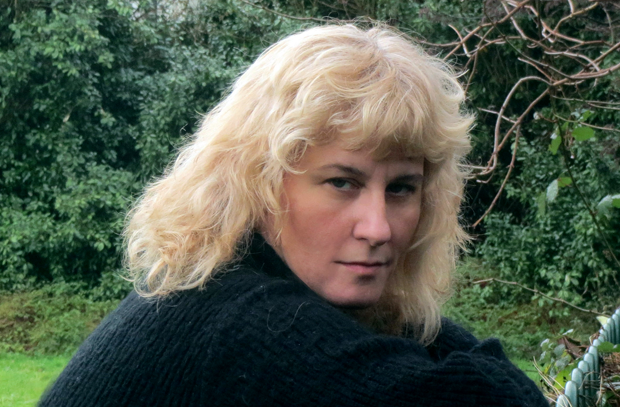
Meltem Arikan
Arikan is a writer who has long used her work to challenge patriarchal structures in society. He latest play “Mi Minor” was staged in Istanbul from December 2012 to April 2013, and told the story of a pianist who used social media to challenge the regime. Only a few months after, the Gezi Park protests broke out in Turkey. What started as an environmental demonstration quickly turned into a platform for the public to express their general dissatisfaction with the authorities — and social media played a huge role. Arikan was one of many to join in the Gezi Park movement, and has written a powerful personal account of her experiences. But a prominent name in Turkey, she was accused of being an organiser behind the protests, and faced a torrent of online abuse from government supporters. She was forced to flee, now living in exile in the UK.
I realised that we were surrounded, imprisoned in our own home and prevented from expressing ourselves freely.
Anabel Hernández — Mexico

Anabel Hernández (Image: YouTube)
Hernández is a Mexican journalist known for her investigative reporting on the links between the country’s notorious drug cartels, government officials and the police. Following the publication of her book Los Señores del Narco (Narcoland), she received so many death threats that she was assigned round-the-clock protection. She can tell of opening the door to her home only to find a decapitated animal in front of her. Before Christmas, armed men arrived in her neighbourhood, disabled the security cameras and went to several houses looking for her. She was not at home, but one of her bodyguards was attacked and it was made clear that the visit — from people first identifying themselves as members of the police, then as Zetas — was because of her writing.
Many of these murders of my colleagues have been hidden away, surrounded by silence – they received a threat, and told no one; no one knew what was happening…We have to make these threats public. We have to challenge the authorities to protect our press by making every threat public – so they have no excuse.
Amira Osman — Sudan
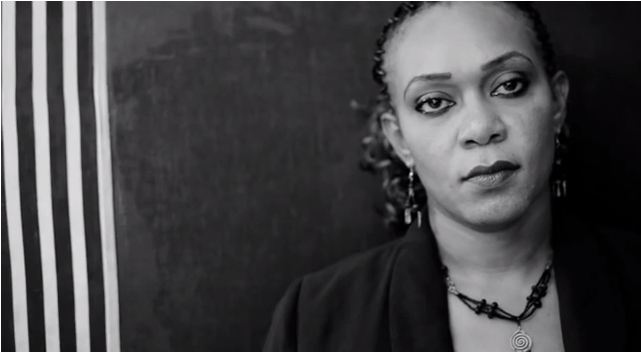
Amira Osman (Image: YouTube)
Amira Osman, a Sudanese engineer and women’s rights activist was last year arrested under the country’s draconian public order act, for refusing to pull up her headscarf. She was tried for “indecent conduct” under Article 152 of the Sudanese penal code, an offence potentially punishable by flogging. Osman used her case raise awareness around the problems of the public order law. She recorded a powerful video, calling on people to join her at the courthouse, and “put the Public Order Law on trial”. Her legal team has challenged the constitutionality of the law, and the trial as been postponed for the time being.
This case is not my own, it is a cause of all the Sudanese people who are being humiliated in their country, and their sisters, mothers, daughters, and colleagues are being flogged.
Fadiamata Walet Oumar — Mali
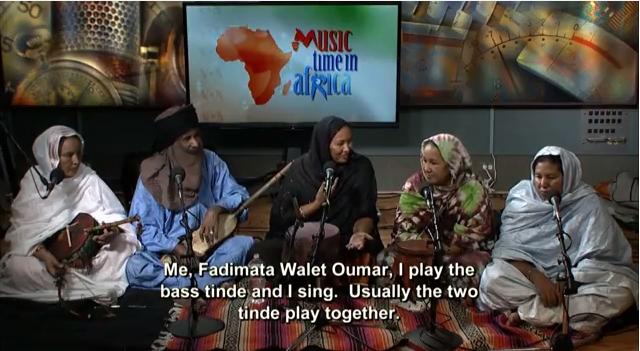
Fadiamata Walet Oumar with her band Tartit (Image: YouTube)
Fadiamata Walet Oumar is a Tuareg musician from Mali. She is the lead singer and founder of Tartit, the most famous band in the world performing traditional Tuareg music. The group work to preserve a culture threatened by the conflict and instability in northern Mali. Ansar Dine, an islamists rebel group, has imposed one of the most extreme interpretations of sharia law in the areas they control, including a music ban. Oumar believes this is because news and information is being disseminated through music. She fled to a refugee camp in Burkina Faso, where she has continued performing — taking care to hide her identity, so family in Mali would not be targeted over it. She also works with an organisation promoting women’s rights.
Music plays an important role in the life of Tuareg women. Our music gives women liberty…Freedom of expression is the most important thing in the world, and music is a part of freedom. If we don’t have freedom of expression, how can you genuinely have music?
Khadija Ismayilova — Azerbaijan

Khadija Ismayilova
Ismayilova is an award-winning Azerbaijani journalist, working with Radio Free Europe/Radio Liberty. She is know for her investigative reporting on corruption connected to the country’s president Ilham Aliyev. Azerbaijan has a notoriously poor record on human rights, including press freedom, and Ismayilova has been repeatedly targeted over her work. She was blackmailed with images of an intimate nature of her and her boyfriend, with the message to stop “behaving improperly”. This February, she was taken in for questioning by the general prosecutor several times, accused of handing over state secrets because she had met with visitors from the US Senate. In light of this, she posted a powerful message on her Facebook profile, pleading for international support in the event of he arrest.
WHEN MY CASE IS CONCERNED, if you can, please support by standing for freedom of speech and freedom of privacy in this country as loudly as possible. Otherwise, I rather prefer you not to act at all.
Jillian York — US
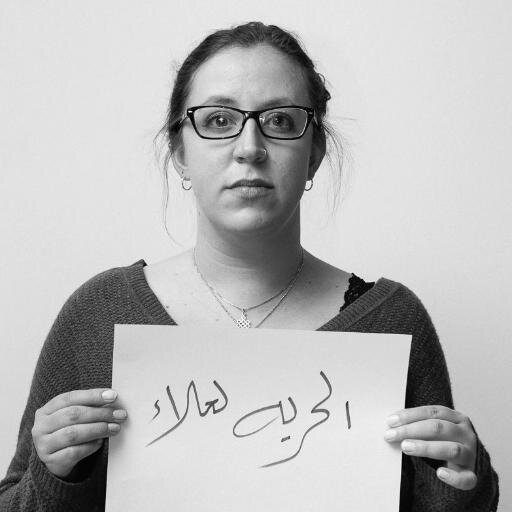
Jillian York (Image: Jillian C. York/Twitter)
Jillian York is a writer and activist, and Director of Freedom of Expression at the Electronic Frontier Foundation (EFF). She is a passionate advocate of freedom of expression in the digital age, and has spoken and written extensively on the topic. She is also a fierce critic of the mass surveillance undertaken by the NSA and other governments and government agencies. The EFF was one of the early organisers of The Day We Fight Back, a recent world-wide online campaign calling for new laws to curtail mass surveillance.
Dissent is an essential element to a free society and mass surveillance without due process — whether undertaken by the government of Bahrain, Russia, the US, or anywhere in between — threatens to stifle and smother that dissent, leaving in its wake a populace cowed by fear.
Cao Shunli — China
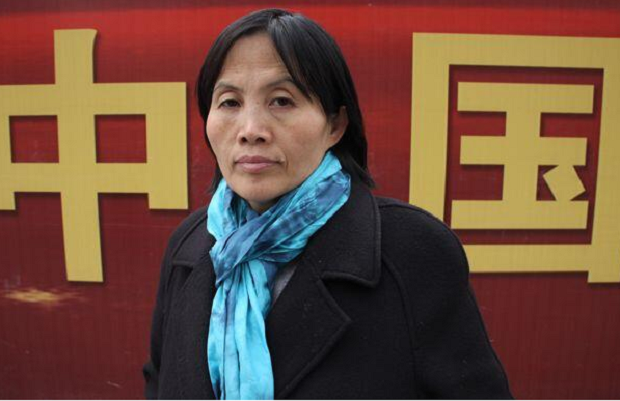
Cao Shunli (Image: Pablo M. Díez/Twitter)
Shunli is an human rights activist who has long campaigned for the right to increased citizens input into China’s Universal Periodic Review — the UN review of a country’s human rights record — and other human rights reports. Among other things, she took part in a two-month sit-in outside the Foreign Ministry. She has been targeted by authorities on a number of occasions over her activism, including being sent to a labour camp on at least two occasions. In September, she went missing after authorities stopped her from attending a human rights conference in Geneva. Only in October was she formally arrested, and charged for “picking quarrels and promoting troubles”. She has been detained ever since. The latest news is that she is seriously ill, and being denied medical treatment.
The SHRAP [State Human Rights Action Plan, released in 2012] hasn’t reached the UN standard to include vulnerable groups. The SHRAP also has avoided sensitive issue of human rights in China. It is actually to support the suppression of petitions, and to encourage corruption.
Zainab Al Khawaja — Bahrain
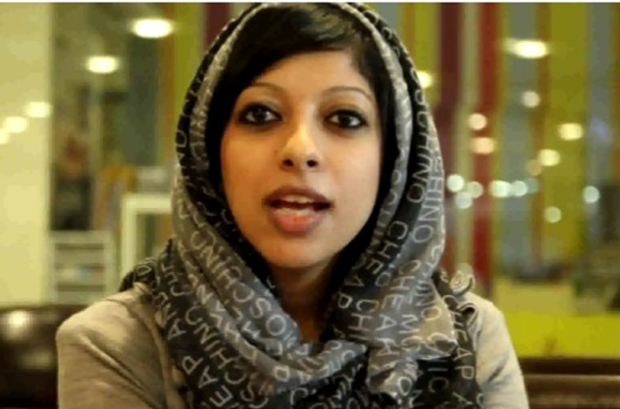
Zainab Al Khawaja
Al Khawaja is a Bahraini human rights activist, who is one of the leading figures in the Gulf kingdom’s ongoing pro-democracy movement. She has brought international attention to human rights abuses and repression by the ruling royal family, among other things, through her Twitter account. She has also taken part in a number of protests, once being shot at close range with tear gas. Al Khawaja has been detained several times over the last few years, over “crimes” like allegedly tearing up a photo of King Hamad bin Isa Al Khalifa. She had been in jail for nearly a year when she was released in February, but she still faces trials over charges like “insulting a police officer”. She is the daughter of prominent human rights defender Abdulhadi Al Khawaja, who is currently serving a life sentence.
Being a political prisoner in Bahrain, I try to find a way to fight from within the fortress of the enemy, as Mandela describes it. Not long after I was placed in a cell with fourteen people—two of whom are convicted murderers—I was handed the orange prison uniform. I knew I could not wear the uniform without having to swallow a little of my dignity. Refusing to wear the convicts’ clothes because I have not committed a crime, that was my small version of civil disobedience.
This article was posted on March 8, 2014 at indexoncensorship.org
22 Nov 2013 | Americas, Asia and Pacific, Azerbaijan News, Europe and Central Asia, News
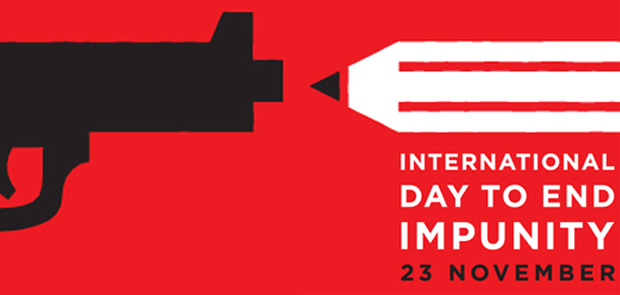
Tomorrow is International Day To End Impunity. “When someone acts with impunity, it means that their actions have no consequences” explains IFEX, the global freedom of expression network behind the campaign. Since 1992, 600 journalists have been killed with impunity — that is 600 lives taken with all or some of those culpable not being being held responsible. Countless others — writers, activists, musicians — have joined their ranks, simply for exercising their right to freedom of expression.
This year has only added to the grim statistics. By the middle of January, six journalists had already been murdered. We are now getting close to the end of 2013, and 73 more journalists and two media workers have suffered the same fate — 48 in cases directly connected to their work, 25 with motives still unconfirmed. Out of these, 15 were killed without anyone — perpetrators or masterminds — convicted.
Russia is notorious for its culture of impunity. In July this year, Akhmednabi Akhmednabiev, a Russian journalist reporting on human rights violations in the Caucasus, was shot dead. In 2009 he had been placed on an “execution list” on leaflets distributed anonymously, and had in the past also received death threats. In January he survived an assassination attempt which local authorities reportedly refused to investigate. His case is still classed as murder with impunity.
Pakistan is also an increasingly dangerous place to work as a journalist. Twenty seven of the 28 journalists killed in the past 11 years in connection with their work have been killed with impunity. In the last year alone, seven journalists have been murdered. Express Tribune journalist Rana Tanveer told Index he has received death threats and been followed for reporting on minority issues. In October, Karak Times journalists Ayub Khattak was gunned down after filing a report on the drugs trade.
In July, Honduran TV commentator Aníbal Barrow was kidnapped together with his family and a driver. The others were released, but after two weeks, Barrow’s body was found floating in a lagoon. He was the second journalists with links to the country’s president Porfirio Lobo Sosa — they were close friends — to have been killed over the past two years. Four members of the criminal group “Gordo” were detained in connection with the case, but at one point, there were at least three other suspects on the run.
In September, Colombian lawyer and radio host Édison Alberto Molina was shot four times while riding on his motorcycle with his wife. His show “Consultorio Jurídico” (The Law Office), aired on community radio station Puerto Berrío Stereo, and often took on the topic of corruption. The Inter American Press Association in October called on authorities to open “a prompt investigation into the murders” of him and news vendor and occasional stringer José Darío Arenas, who was also killed in September.
Meanwhile in Mexico, a country for many synonymous with impunity for crimes against the media, three journalists were murdered in 2013. The state public prosecutor’s offices has yet to announce any progress in the cases of Daniel Martínez Bazaldúa, Mario Ricardo Chávez Jorge and Alberto López Bello, or disclose whether they are linked to their work. Notorious criminal syndicate Zetas took responsibility for the murder of Martínez Bazaldúa and warned the police about investigating the case. He was a society photographer and student, only 22 at the time of his death. Chavez Jorge, founder of an online newspaper, disappeared in May and his body was found in June, but in August the state attorney’s office said they did not have a record of his death. López Bello was a crime reporter who had published stories on the drugs trade.
This year, 20 journalists — from Naji Asaad in January to Nour al-Din Al-Hafiri in September — have also lost their lives covering the ongoing tragedy of the Syrian civil war. Their loved ones, like those of all the civilians killed, will have to wait for justice.
It is also worth noting that while an unresolved or uninvestigated murder is the most serious and devastating manifestation of impunity, it is not the only one. Across the world, journalists are being attacked and intimidated without consequences. In August there was a two-hour long raid on the home of Sri Lankan editor and columnist Mandana Ismail Abeywickrema, who recently started a journalists’ trade union. Despite her receiving threats related to her work prior to the attack, it was labelled a robbery by the police. Bahraini citizen journalist Mohamed Hassan experienced similar incident, also in August, when he was arrested and his equipment seized during a night-time raid. His lawyer Abdul Aziz Mosa was also detained and his computer confiscated, after tweeting about his client being beaten. In October, a group of Azerbaijani journalists were attacked by a pro-government mob while covering an opposition rally in the town of Sabirabad. One of the journalists, Ramin Deko, told Index of regular threats and intimidation.
International Day To End Impunity is a time to reflect on these staggering figures and the tragic stories behind them. More importantly, however, it represents an opportunity to stand up and demand action. Demand that Russia’s President Vladimir Putin, Mexico’s President Enrique Peña Nieto, Pakistan’s President Mamnoon Hussain and the rest of the world’s leaders provide justice for those murdered. Demand an end to the culture of impunity in which journalists, writers, activists, lawyers, musicians and others can be intimidated, attacked and killed simply for daring to speak truth to power. Visit the campaign website to see how you can take action.
24 Sep 2013 | Americas, Mexico, News
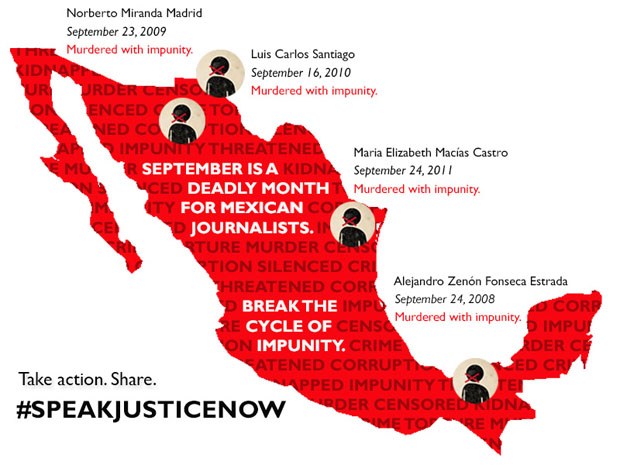 This September marks the anniversary of the murders of four Mexican journalists. Alejandro Zenón Fonseca Estrada, Norberto Miranda Madrid, Luis Carlos Santiago and Maria Elizabeth Macías Castro were each killed within a year of each other, from 2008 to 2011. They were all covering drug cartels and corruption, and not a single person has been brought to justice in these murder cases.
This September marks the anniversary of the murders of four Mexican journalists. Alejandro Zenón Fonseca Estrada, Norberto Miranda Madrid, Luis Carlos Santiago and Maria Elizabeth Macías Castro were each killed within a year of each other, from 2008 to 2011. They were all covering drug cartels and corruption, and not a single person has been brought to justice in these murder cases.
Alejandro Zenón Fonseca Estrada, 33, host of a popular morning call-in show called “El Padrino Fonseca” (The Godfather Fonseca) was gunned down on September 24, 2008, by unidentified men as he was hanging up anti-violence posters.
Norberto Miranda Madrid, 44, was a Web columnist and host for the online station Radio Visión. He was shot multiple times by two masked gunmen in the offices of the radio station on September 23, 2009.
Luis Carlos Santiago worked as a photographer with the local daily El Diario. On September 16, 2010, he was shot and killed by unidentified gunmen. He was 21.
Maria Elizabeth Macías Castro, 39, tweeted about activities of criminal groups and covered the topic on the website Nuevo Laredo en vivo (Nuevo Laredo Live) using the pen name “La NenaDLaredo” (The girl from Laredo). On September 24, 2011, her decapitated body was found with a note that identified the website and her pseudonym.
Speak Justice Now is a campaign against impunity by the Committee to Protect Journalists. We encourage you to join thousands around the world to tweet Mexican President Enrique Peña Nieto today demanding an end to impunity using the hashtag #SpeakJusticeNow.











